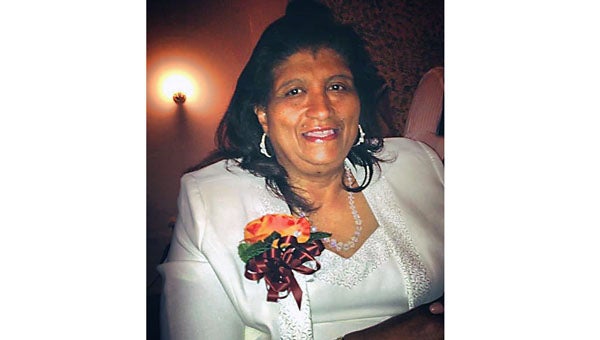Former justice court judge Patricia Dunmore remembered for compassion, wit
Published 2:22 pm Tuesday, October 13, 2020

- Dunmore
|
Getting your Trinity Audio player ready...
|
By LYNDY BERRYHILL
Special to the Democrat
NATCHEZ — Friends and colleagues remember former Adams County Northern District Justice Court Judge Patricia Fleming Dunmore, 66, who died Saturday in Baton Rouge, for her legacy of advocacy for the less fortunate and her dedication to justice.
“She always wanted to be a voice for justice — and she was truly known for that,” said Viveca Johnson, Dunmore’s niece. “She has always been very assertive and motivated.”
Dunmore practiced law in Natchez since the 1970s and served as a judge for nearly 12 years until her health declined in 2019, forcing her to withdraw a bid for reelection.
Dunmore graduated from Jackson State University with a degree in political science and later earned a law degree from the University of Mississippi’s School of Law. After graduation, Dunmore began practicing in Adams County as one of two Black female lawyers.
Dunmore loved the law and loved challenging cases, her friends said. When she was not preparing for a case, she enjoyed traveling with her family and church, cheering on her favorite football teams and playing chess.
Johnson said growing up with trailblazer Dunmore was inspiring and her aunt always encouraged her to excel.
Once, a teacher told Johnson she was incapable of earning an A in class. Discouraged, Johnson went to Dunmore for advice.
“’Never let anyone tell you what you can’t do. Prove them wrong,’” Johnson said Dunmore told her.
Renewed, Johnson took her advice to heart and did make an A that semester.
“She was my real-life role model,” Johnson said.
Dunmore cared deeply about the future of her hometown and its youth. She devoted time each weekend to hosting a support group for teenagers where she spoke to them about life choices and the importance of making good decisions.
At times, Dunmore was known to pay travel fees and cover costs for students so they could attend trips and travel with her church group.
Johnson said her aunt made a point to encourage people and was known for mentoring young people and young lawyers. One of those young professionals now serves on the Mississippi Court of Appeals.
Mississippi Court of Appeals Judge Deborah McDonald became friends with Dunmore when she began her legal career at the former Southwest Mississippi Legal Services in McComb. McDonald represented the poor for Legal Services for nine years.
McDonald said Dunmore was a tireless advocate for her clients who were often poor and could not pay her much.
“She wanted to look out for the underdog,” McDonald said. “She spoke up for the voiceless.”
McDonald said people in positions of power and those with money often get better legal deals, but not while Dunmore was holding court.
McDonald said Dunmore loved the law and believed everyone deserved equality.
“She was definitely a child of the Civil Rights Movement,” McDonald said.
Dunmore, whose parents advocated for equality in Natchez, told McDonald about the night gunfire riddled her childhood home while she was young. Dunmore still remembered the sound of bullets shattering her windows years later.
McDonald said she believes such experiences galvanized Dunmore into the trailblazing attorney she became.
Circuit Judge Lillie Blackmon Sanders attended law school with Dunmore and said they bonded during study sessions.
“We became lifelong friends,” Sanders said.
The two started a firm in Natchez together as the city’s first Black female lawyers.
Sanders said practicing law in the 1970s, a time when people openly expressed sexism and racism, was challenging.
At one trial, the presiding judge asked to see Dunmore’s law school diploma to prove she was qualified to represent her client.
“My law degree looks just like yours,” Dunmore reportedly said.
Sanders said as tough as Dunmore was in court, she was a very loving person with a strong wit.
McDonald said her clients knew she cared about them, and they expressed their admiration for Dunmore years after she represented them.
Sanders said Dunmore never got tired of defending clients or defending herself.
“Male attorneys would pretend they didn’t hear us (at times),” Sanders said. “It was frustrating, but we didn’t let that get to us. We just continued on.”
Dunmore’s family and colleagues cite her faith as her source of resilience to fight injustice where she saw it.
“She was always swimming upstream. She was a woman of faith against the grain,” Sanders said. “Judge Dunmore was a respected jurist, a fearless advocate for justice…woman of faith and a beloved mother, grandmother, sister and friend.”
Dunmore leaves behind one daughter, Eryca Dunmore, and five grandchildren from 8 to 23 years old.






